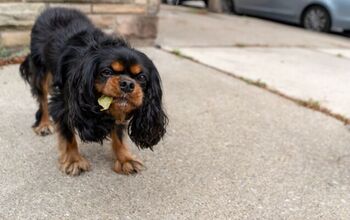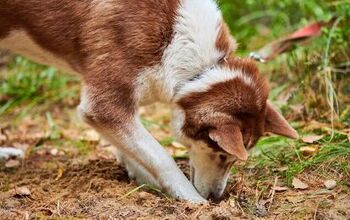How Do I Stop My Puppy from Biting?

Puppies are adorable, silly, and full of energy - but sometimes, their little needle teeth can be a lot to handle. If your new furry friend keeps using you as a chew toy, you’re definitely not alone.
Why Do Puppies Bite?
There are several reasons puppies bite:
- Exploration and play: Puppies use their mouths to interact with their environment, just as they did with their littermates.
- Teething discomfort: Between 3 and 6 months, puppies lose their baby teeth and grow adult ones. Chewing helps soothe sore gums.
- Excitement or frustration: Puppies are still learning impulse control. Sometimes, biting is just how they express big feelings.
In a litter, puppies learn bite inhibition by playing with each other - when one bites too hard, the other yelps and stops playing. That’s where your training starts.
Step 1: Teach That Biting Ends the Fun
If your puppy bites you during play, let out a sharp, high-pitched “ow!” - mimicking the way littermates would react - and immediately stop the interaction. Turn away or walk out of the room for a few seconds.
This teaches your puppy that biting ends the fun, and over time, they’ll begin to soften their bite - or stop entirely. And don't forget that consistency is key: every family member should react the same way so your puppy receives a clear message.
Step 2: Redirect with Chew Toys
Always have appropriate chew toys on hand. If your puppy goes for your fingers or clothes, calmly offer a toy instead. This helps them learn what’s okay to chew.
- Try a variety of textures - plush toys for soft chewers, rubber toys for teething relief.
- Rotate toys to keep them interesting.
- Reinforce good choices by praising your pup when they chew the right thing.
Step 3: Avoid Rough Play
Roughhousing or letting your puppy chase your hands can encourage biting, even if it seems like harmless fun. Instead:
- Opt for structured games like tug-of-war (with a toy) or fetch.
- Supervise all play, and use cues like “drop it” or “leave it” to set clear boundaries.
- If your puppy gets too excited or starts nipping, take a short break to help them settle down.
Step 4: Be Patient and Positive
Biting doesn’t stop overnight. Some days your pup may seem like they’re making progress, while other days they might forget everything. That’s okay!
What matters is that you stay:
- Consistent with responses,
- Patient through setbacks,
- Positive with reinforcement (lots of praise and small treats).
Never yell at or punish your puppy for biting. Fear-based reactions can make the behavior worse or lead to anxiety. Instead, focus on rewarding the calm, gentle behaviors you want to see more of.
When Will the Biting Stop?
Most puppies grow out of the biting phase by 6 months of age, especially with consistent training and plenty of opportunities to chew and play appropriately.
But if the biting seems aggressive, escalates, or doesn’t improve with time, don’t hesitate to speak with a professional trainer or your vet.
Stay Patient, Stay Positive
Biting is a totally natural puppy phase, but with your guidance, your pup will soon learn better ways to interact with the world. Be calm, consistent, and kind - and remember, every chew-free cuddle brings you one step closer to raising a happy, well-behaved dog.

A proud mama to seven dogs and ten cats, Angela spends her days writing for her fellow pet parents and pampering her furballs, all of whom are rescues. When she's not gushing over her adorable cats or playing with her dogs, she can be found curled up with a good fantasy book.
More by Angela Vuckovic

























